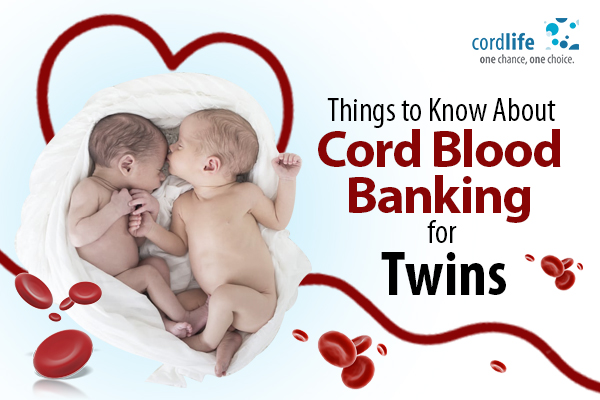Table of Contents
Getting ready to have twins? It’s going to be double the joy and also double the work. You might have already spoken to your doctor about the various complications you may encounter in your pregnancy. You may have also discussed the care you need to take. However, have you asked your doctor about cord blood banking?
If you haven’t, then this article will help you understand how cord blood banking can help your twins in the future.
Why Is Cord Blood Banking Important?
The blood from your baby’s umbilical cord is a rich source of hematopoietic stem cells. These potentially life-saving stem cells have the ability to transform into red or white blood cells or even platelets. Therefore, it is widely used in treating patients suffering from disorders of the blood, immune system, metabolism, etc. Currently, there are over 80 diseases that are being treated using cord blood cells, including certain forms of cancer. With the advancement of medical technology and knowledge, researchers believe that the number of treatable diseases will only increase. Another fantastic fact about cord blood cells is that they can be used to treat the donor’s immediate family members. Since these umbilical cord blood cells are at a nascent stage, there is a lesser chance of Graft-Versus-Host-Disease where the recipient’s body rejects the newly infused stem cells.
This opens up a plethora of opportunities for treating any future illness your baby or his/her twin may develop.
Can Cord Blood Banking Be Done For All Kinds Of Twins?
It doesn’t matter whether your twins are Fraternal (where the fetuses grow from two separate eggs) or Identical (where the fetuses grow from one egg and split into two at a later stage). You can still do cord blood banking for both and safeguard them against any health issue that may arise in the future.
Why Bank The Umbilical Cord Blood Of Both The Babies?
Since fraternal twins don’t share an identical genetic build, there is a possibility that one can inherit a genetic disorder while the other doesn’t. In such cases, the healthy twin’s cord blood cells can be used to treat the other as it’s the closest possible match. Although identical twins start with identical genomes, certain environmental factors can influence and change how these genes shape up. Hence, one of your identical twins may grow up to develop a genetic disease while the other may not.
Your body naturally produces enough blood to nourish and nurture both babies, even when they share a placenta. However, since twins generally tend to be smaller in size and share the space in a womb, the volume of blood available for collection is relatively lower. Don’t be disheartened! As each baby has an individual umbilical cord attached to them, there is enough cord blood collected from each and cryopreserved at a private cord blood bank. Public cord blood banks operate similarly to public blood banks and hence, cannot be retrieved as and when required.
Simply put, when you bank the stem cells of both your babies, you maximise the treatment opportunities for themselves and their sibling for years to come. So, don’t let this golden chance go to waste.
